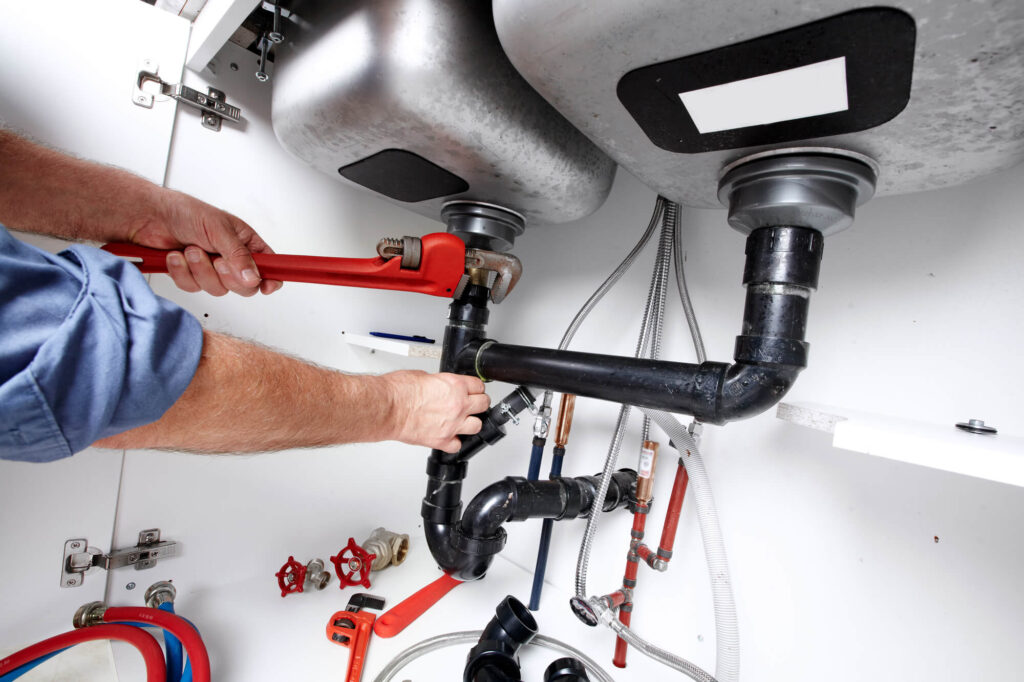Maintaining the plumbing system of your residence might appear to be dauntingly complex, but actually, it requires just a few simple tips and attention periodic in nature. Consistent maintenance prevents leaks, clogs, and high-priced repairs; hence, you will have a trouble-free top plumbing services in phoenix system working when you need it. Here is a step-by-step easy guide to help you in maintaining or keeping your home plumbing system in fantastic shape.
Inspect for Leaks Regularly
Start developing a schedule of plumbing inspections to aid in the discovery of leaks. Small leaks, like those from a dripping faucet or minor under-the-sink leak, will become bigger leaks if left untreated. To identify leaks early:
- Look for drips under sinks, around toilets, and near visible pipes.
- Listen for unexpected noises, such as dripping sounds or the running of water when all taps are turned off.
- Check your cabinets and walls for water stains, mold, or mildew, which usually indicate leaks behind the scenes. Catching small leaks quickly can save both water and prevent further damage to your home.
Keep Drains Clear and Free-Flowing
The clogging of drains is one of the most common complaints, yet it is rather easy to avoid. Here’s how you can keep your drains clear:
- Avoid pouring grease, coffee grounds, and food scraps down the kitchen sink; they can block the pipe over time.
- Install drain strainers in sinks, bathtubs, and showers to catch hair and particles of food and debris.
- Hot water should be run through drains to clear out the grease and soap deposits on a regular basis. Pouring a pot of hot-but not boiling-water down your drain once every week can help prevent clogs.
Don’t Ignore Slow Drains
If you notice that your sink, shower, or tub is draining slower than it has before, do not ignore it. Slow draining usually is the first sign of an accumulating clog in the pipes. It is much easier to address this early on rather than waiting until a complete blockage has occurred. You can use:
- A plunger to dislodge clogs in sinks and showers.
- A drain snake to reach clogs deeper in the pipes.
- A homemade solution of baking soda and vinegar to break down minor buildups naturally.
Know What Should (and Shouldn’t) Go in the Toilet
The only things toilets are meant to take are waste and toilet paper. Anything else can cause serious blockages. Things you should never flush include:
- Baby wipes and “flushable” wipes, even if they say they are
- Paper towels, cotton balls, and cotton swabs
- Feminine hygiene products
- Diapers and dental floss Keeping these items out of the toilet will prevent blockages and protect your plumbing system.
Use Water Pressure Moderately
High water pressure felt while taking a shower can be good; however, it puts a strain on the pipes over some time. Extremely high water pressure leads to leaks, pipe damage, or shortens the life of appliances like a dishwasher or washing machine. You can check your water pressure by:
- Installing a water pressure gauge on an outdoor faucet to test the pressure.
- Keep your water pressure between 40-60 psi. If its higher consider installing a pressure regulator. Keeping Water Pressure-The maintaining of the water pressure can help prevent your plumbing from going through unnecessary wear and tear.

Prevent Frozen Pipes in Cold Weather
In areas where the temperatures go below freezing, disaster can follow along in the form of bursting pipes and resulting water damage. To prevent freezing pipes this winter, you can:
- Insulating pipes in areas like basements, attics, and crawl spaces.
- Letting faucets drip slightly on extremely cold nights to relieve pressure if pipes do freeze.
- Keeping your home heated, even if you’re away, to prevent the pipes from getting too cold. These simple steps can save you a major headache during the winter months.
Maintain Your Water Heater
Your water heater is one of the most active appliances in your 24/7 emergency plumbing service in phoenix system, and routine maintenance can keep it running properly. To maintain your water heater:
- Have a few gallons drained from the tank every six months to get rid of the sediment building up inside it. This may also help in extending the life of your heater and improving heating efficiency.
- Check the temperature setting and maintain it at approximately 120°F to avoid scalding and save energy costs.
- Look out for rusting or leakage around the tank for any signs that may indicate repairs or replacement. Your maintenance of the water heater ensures a continued supply of hot water without an unprecedented stop.
Inspect Your Sump Pump Regularly
If you have a sump pump in your home, it requires regular maintenance. Failure to keep the sump pump working will result in flooded basements. Here is how to care for it:
- Test the sump pump every few months by pouring water into the pit to see if it activates.
- Clear away any debris around the pump to prevent it from clogging.
- Also consider having a backup battery for your pump in case you get stuck with a power outage when heavy rain and much water is the last thing you want to have in your basement. Regular checks on your sump pumps will be able to prevent water damage in your basement, especially during wet seasons.
Be Cautious with Chemical Drain Cleaners
While these may apparently be an easy way out, the chemical cleaners actually cause more damage over a specific period, with their use repeatedly. Employ natural methods to clean or at least use a mechanical tool like a snake to remove blockages. If you need to use a chemical cleaner, then use it sparingly, making sure to follow the manufacturer’s instructions to avoid causing damage to your pipes and fixtures.
Schedule Professional Inspections
While maintenance by oneself is necessary, professional plumbers may point out issues that one may fail to notice in the system on a yearly basis. For example, plumbers have the special equipment to find hidden leaks, any water pressure abnormalities, and inspection of pipes for future problems that may arise. This will save you money in the future because it prevents you from major repairs.
Conclusion
No special skills are needed to regularly service a plumbing system-just a little time, attention, and routine care. By following these easy recommendations, you’ll help prevent leaks and blockages, high-priced repairs, too, and ensure that your plumbing system is efficient and dependable, serving you well for years to come. A little preventive care indeed goes a long way in maintaining your home’s plumbing.



0 Comments